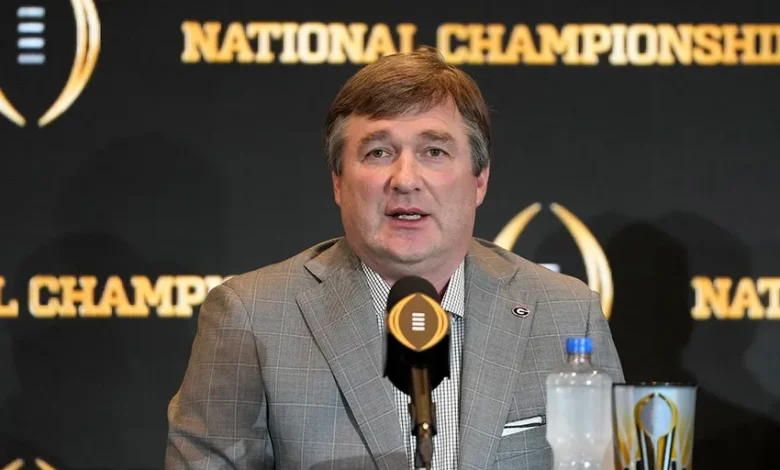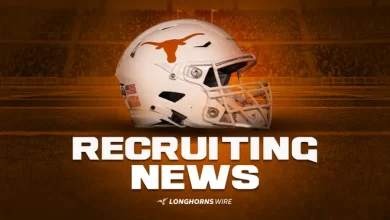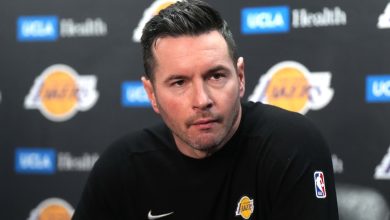Kirby Smart expresses his fears ahead of House Settlement hearings: ‘Kids are going to struggle the next 10 years’

Georgia Bulldogs head coach Kirby Smart has never been one to shy away from voicing his concerns about the state of college football. As the sport undergoes seismic shifts due to Name, Image, and Likeness (NIL) deals, the transfer portal, and potential congressional intervention, Smart is now expressing his fears ahead of the upcoming House Settlement hearings, warning that today’s players could face unprecedented struggles over the next decade.
A Changing Landscape in College Football
College football has undergone a radical transformation in recent years, with NIL opportunities reshaping recruitment, roster management, and player compensation. While these changes have created financial opportunities for athletes, they have also introduced uncertainty and instability to the sport.
Smart, who has led Georgia to multiple national championships, has been vocal about the potential downsides of these changes, particularly regarding how they impact young athletes trying to navigate the new era of college football.
What Are the House Settlement Hearings?
The House Settlement hearings are expected to address multiple issues surrounding college athletics, including NIL regulations, athlete compensation, and the growing influence of the transfer portal. Lawmakers and NCAA officials will discuss potential policies to stabilize the system, but there is concern that the outcome of these hearings could have lasting consequences on players, coaches, and programs alike.
As the hearings approach, Smart has made it clear that he sees potential pitfalls in how the sport is evolving.
Kirby Smart’s Concerns: ‘Kids Are Going to Struggle’
Speaking to reporters ahead of Georgia’s spring practice, Smart delivered a candid assessment of where things stand: “I’m worried about these kids. I don’t think people fully understand what’s at stake here. The way things are going, kids are going to struggle the next 10 years.”
Smart elaborated on his concerns, emphasizing several key areas where he believes college athletes could face difficulties:
1. Financial Mismanagement Among Young Athletes
With NIL deals pouring millions into the hands of college athletes, Smart fears that many young players lack the financial literacy to manage their newfound wealth.
“There’s no system in place to teach these kids how to handle money,” Smart said. “They’re signing deals worth hundreds of thousands—sometimes millions—but no one is preparing them for what happens when the money runs out. Without proper guidance, I worry that a lot of them are going to find themselves in tough situations after their college careers are over.”
While some schools offer financial education programs, Smart believes more needs to be done on a national scale to equip players with the knowledge they need to make sound financial decisions.
2. The Mental Health Toll of the Transfer Portal
Another major concern for Smart is the impact of the ever-evolving transfer portal. With players switching schools at an unprecedented rate, Smart argues that the constant movement can have unintended consequences on athletes’ mental well-being.
“There’s this idea that the portal gives players more freedom—and in some ways, it does—but it also creates instability,” he explained. “A lot of these kids are transferring two, three times in their careers. They’re constantly having to start over, make new connections, and earn their place on a team again. That kind of instability can take a serious toll on their mental health.”
Smart pointed to stories of players entering the transfer portal with high hopes, only to find themselves without a landing spot. He fears that many athletes are being misled into believing that transferring is always the best option when, in reality, it can be a risky move.
3. The Erosion of Team Culture and Development
Georgia has built one of the most dominant programs in college football by emphasizing player development and long-term growth. However, Smart worries that the current system discourages players from staying the course and developing within a program.
“We’re seeing a situation where guys aren’t willing to fight through adversity,” Smart said. “The moment things get tough, they’re looking for an exit. That’s not how you grow as a player or as a person. Some of the greatest players I’ve ever coached had to battle through tough times early in their careers. If they had transferred at the first sign of adversity, they wouldn’t have become the stars they are today.”
Smart emphasized that while he supports players’ rights to make decisions about their careers, he also believes that long-term development within a stable environment is often the best path for success.
4. The Impact of Legal and Political Intervention in College Football
With the upcoming House Settlement hearings, lawmakers will debate potential policies aimed at regulating NIL deals, the transfer portal, and other pressing issues. Smart is concerned that too much political interference could do more harm than good.
“I understand that Congress wants to step in and create structure, but we have to be careful,” Smart warned. “This isn’t just about money—it’s about the future of these kids and the game itself. If we don’t get this right, we’re going to see a lot of young men struggling in ways we’ve never seen before.”
Smart believes that college football needs clear and fair policies but worries that rushed or poorly thought-out regulations could backfire.
Potential Solutions: What Can Be Done?
While Smart has outlined several concerns, he also believes that steps can be taken to mitigate the potential struggles facing college athletes.
1. Implementing Mandatory Financial Education Programs
Smart is a strong advocate for financial education programs that would be required for all college athletes receiving NIL compensation. He suggests that universities, the NCAA, or even outside organizations should provide structured courses to help athletes understand budgeting, taxes, and long-term financial planning.
2. Creating Stricter Transfer Portal Regulations
Smart believes that while players should have the right to transfer, there needs to be better regulation to prevent instability. He has suggested a system where athletes must meet specific criteria before transferring, such as completing a minimum number of semesters at their current school.
3. Establishing Mental Health Support Systems
With the pressures of NIL, social media scrutiny, and the instability caused by the transfer portal, Smart wants to see universities invest more in mental health resources for athletes. Ensuring that players have access to therapists, counselors, and mentors could make a significant difference in their well-being.
4. Encouraging Stability and Development in College Football
Ultimately, Smart wants to see college football return to a culture where long-term development is valued over short-term gains. He believes that coaches, administrators, and athletes all need to work together to create an environment where players are encouraged to grow within their programs rather than constantly seeking immediate rewards elsewhere.
Final Thoughts: A Defining Moment for College Football
As the House Settlement hearings approach, the future of college football hangs in the balance. Kirby Smart’s concerns highlight the challenges facing today’s players, and while the current system offers many new opportunities, it also presents risks that could impact athletes for years to come.
Smart’s message is clear: if college football doesn’t find the right balance in its evolving landscape, the next generation of players could face struggles unlike anything seen before. As lawmakers, NCAA officials, and university leaders debate the future of the sport, Smart hopes that the well-being of student-athletes remains the top priority.
For now, Georgia will continue to push forward, navigating these challenges while striving to remain at the pinnacle of college football. But one thing is certain: the decisions made in the coming months will shape the trajectory of the sport—and its players—for the next decade and beyond.









